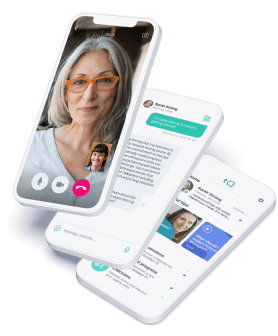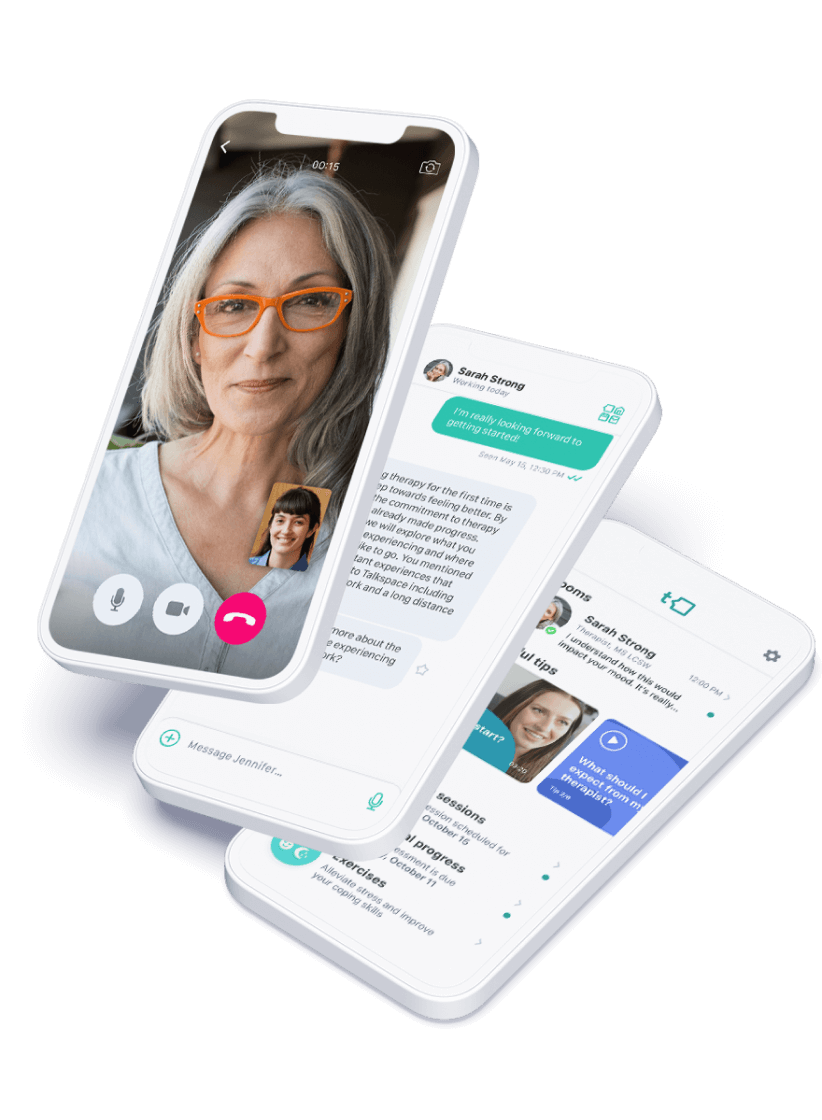Updated On: May 3, 2024
Overview
Updated on 9/8/2022
If you have an ADHD diagnosis and are finding it difficult to manage, you might be wondering when to see a psychiatrist. If you’re at the point where you’re ready to consider medication to help you manage your attention deficit hyperactivity disorder (ADHD), you need to learn as much as possible about your options. Together with your doctor or an online psychiatrist, you can figure out which type of ADHD medication is the best for you.
It’s important to keep in mind, however, that the best form of treatment for ADHD is most often a combination of techniques and treatment. Medication treatment, behavioral modification, counseling, therapy, education, and skills training and management are all important. Known as a multimodal treatment, a combined approach to treating ADHD typically garners the best results.
While ADHD can’t be cured, good medication treatment and thoughtful education plans can allow for drastic improvement in ADHD symptoms.
Keep reading to learn more about the types of ADHD medication that are effective and helpful, how to get the right prescription, and everything else you should know about treating attention deficit hyperactivity disorder.
Types of Medications Used to Treat ADHD
There are several ADHD medications you might consider. We’re taking a look at the more common ones in depth in the following ADHD medication list.
Prescription Stimulants (long-acting/extended-release)
Long-acting/extended-release stimulants have been used to treat ADHD for decades. They’re the most commonly prescribed medication to treat ADHD in children, and they’re actually the most well-researched ADHD drug for both children and adults.
Stimulant drugs can help you focus your thoughts while ignoring external distractions. They can be used to treat moderate to severe ADHD, and they work for an estimated 70 to 80% of people who try them. They’re effective because they slowly and gradually increase norepinephrine and dopamine levels and activity in your brain. Since they’re “long-acting” they take effect and wear off slowly through the day which can help reduce major side effects.
Stimulants are known to be effective for a wide range of ages, including children, adolescents, teens, and adults. Within the class of stimulants, there are two types of ADHD medications: methylphenidate and amphetamine salts. Extended-release stimulants are most often taken once a day in the morning.
Types of methylphenidate long-acting stimulants to treat ADHD:
- Ritalin-SR
- Focalin XR
- Concerta
- Daytrana
- Methylin-ER
- Metadate CD
- Ritalin-LA
- QuilliChew-ER
- Quillivant XR
- Aptensio-XR
Types of amphetamine long-acting stimulants to treat ADHD:
- Adderall-XR
- Adzenys XR ODT
- Azstarys
- Vyvanse
- Evekeo
- Adderall-XR
- Dyanavel-XR
Possible side effects of long acting stimulants to treat ADHD:
- Loss of appetite
- Weight loss
- Irritability
- Social withdrawal
- Anxiety
- Sleeping issues
- Rebound effect
- Tics or uncontrollable muscle movement
- Minor growth delay
- The FDA has concerns that both amphetamine and methylphenidate stimulants might make psychiatric and heart problems more likely
Prescription Stimulants (short-acting/immediate release)
Short-acting stimulants are taken typically every four hours when needed. Like long-acting stimulants, short-acting/immediate-release stimulants also target a neurotransmitter called dopamine. This brain chemical helps control emotional responses and movement while also playing a major role in motivation.
Types of methylphenidate short-acting stimulants to treat ADHD:
- Ritalin
- Focalin
- Methylin Oral Solution
- Methylin
Types of amphetamine short-acting stimulants to treat ADHD:
- Dexedrine
- Adderall
- ProCentra Oral Solution
- Evekeo
- Zenzedi
Possible side effects of short-acting stimulants to treat ADHD:
- Loss of appetite
- Weight loss
- Sleeping issues
- Irritability
- Tics
Non Stimulant Medication
As an alternative to stimulant medications used for ADHD treatment, non-stimulant medications are also an option. These typically take longer to begin working after the dose adjustment , and the full effect of the ADHD meds may not be felt or seen for several weeks.
On the positive side, however, non-stimulants typically don’t cause as many sleep issues or agitation. Nor do some of them result in a lack of appetite, which can be important in younger children. Non-stimulants are also used in conjunction with stimulants as the treatment plan by your psychiatrist. Finally, non-stimulants don’t have the same risk of addiction or abuse as some other medications used for ADHD do.
Non-stimulant ADHD medication boosts levels of norepinephrine in the brain. Increasing norepinephrine helps with emotional stability and executive functioning. People who take certain non-stimulants to treat their ADHD may be able to begin and finish tasks more quickly and efficiently with an increased attention span. They also may find a significant decrease in impulsivity, distractibility, and hyperactivity.
Types of non stimulants to treat ADHD:
- Atomoxetine
- Clonidine ER
- Guanfacine ER
- Intuniv
- Kapvay
- Strattera
- Tenex
- Viloxazine
- Qelbree
Possible side effects of non stimulants to treat ADHD:
- Fatigue
- Nausea
- Upset stomach
- Mood swings
- Loss of appetite (in certain medications)
- Dry mouth
- Vomiting
- Dizziness
Antidepressants
Sometimes antidepressants can be used off-label to treat ADHD. Using a drug off-label means it’s used by doctors even though it hasn’t officially been approved by the FDA for use with a specific medical or mental health condition.
In 2005, the FDA added a black box label about an apparent link between a higher risk of suicide in adults who use depression medication for ADHD. This risk seems to be increased in the first 1 – 2 months of use.
Certain antidepressant drugs, known as selective serotonin reuptake inhibitors (SSRIs), bupropion, or venlafaxine have been found potentially effective in treating ADHD. Sometimes these are used in combination with other ADHD medications for comorbid depression and anxiety with ADHD symptoms
Antidepressants are similar to stimulants in that they help raise levels of certain chemicals in the brain like norepinephrine and dopamine. These two chemicals, when increased, can help improve attention span in those who have ADHD. They are also helpful in reducing impulsivity, hyperactivity, and aggression.
Types of antidepressants to treat ADHD:
- Wellbutrin
Possible side effects of antidepressants to treat ADHD:
- Dry mouth
- Weight loss
- Low blood pressure
- Tremors
- Drowsiness
- Blurred vision
- Upset stomach
*NOTE: According to the Cleveland Clinic, side effects can differ based on the type of antidepressant drug you’re taking for your ADHD. Some meds may cause a rapid heart rate while others can cause anxiety and headaches. It’s important to let your doctor know about any side effects you’re feeling if you begin taking an antidepressant ADHD medication.
Medications Commonly Prescribed for ADHD
You have many options for medication to treat your ADHD. Finding the right medication can take some time. Understand that often, a multimodal treatment (a combination of treatments) is the most effective option for many people who have ADHD.
Be patient, talk to your doctor, and know that taking enough time to figure out the right medication, dosage, and schedule can really pay off in the end.
Talk to your psychiatrist or healthcare professional about the possible risks and benefits associated with the above medications before starting any treatment.
| Name Brand | Generic | Type | Description |
|---|---|---|---|
| Strattera | Atomoxetine | Non stimulant | A cognitive-enhancing medication that treats symptoms of ADHD. |
| Intuniv ER | Guanfacine | Non stimulant | Thought to affect receptors in parts of the brain that can strengthen working memory and reduce distraction. Also seems to improve impulse control and attention. |
| Tenex | Guanfacine hydrochloride tablets | Non stimulant | Off-label use for ADHD treatment. Can be used alone or with a stimulant. |
| Ritalin | Methylphenidate hcl | Short acting methylphenidate | Changes the amounts of certain natural substances in the brain to treat ADHD. |
| Methylin | Methylphenidate hcl | Short acting methylphenidate | Central nervous system stimulant used primarily to treat ADHD. |
| Ritalin-SR | Methylphenidate hcl | Longer acting methylphenidate | Treats ADHD and narcolepsy. |
| QuilliChew-ER | Methylphenidate hydrochloride | Longer acting methylphenidate | Central nervous system stimulant prescription ADHD medication. |
| Aptensio-XR | Methylphenidate hydrochloride | Longer acting methylphenidate | Treats symptoms of ADHD and narcolepsy. Can be used alone or with other medications. |
| Adderall | Dextroamphetamine mixed salts | Short acting amphetamine | Central nervous system stimulant used to treat the symptoms of hyperactivity and impulse control. Can be used alone or with other medications. |
| Zenzedi | Dextroamphetamine sulfate | Short acting amphetamine | Prescription medicine that can be used alone or with other medication to treat symptoms of ADHD. |
| Adderall-XR | Dextroamphetamine mixed salts | Longer acting amphetamine | Stimulant that’s used to treat ADHD and narcolepsy. |
| Dyanavel-XR | Amphetamine extended-release | Longer acting amphetamine | Central nervous system (CNS) stimulant that treats ADHD. Can help increase attention and decrease impulsiveness and hyperactivity. |
| Wellbutrin | Bupropion hcl | Antidepressant | Not first-line medication for ADHD but can be helpful in treating symptoms in some people. |
| Tofranil | Imipramine | Antidepressant | Useful in treating additional symptoms of depression or anxiety that are common in those who have ADHD. |
How to Get ADHD Medication
If you’re thinking about starting any child or adult ADHD medication, it’s important to talk to your doctor or psychiatrists first. Learning as much as you can about a potential medication and its side effects can enhance the likelihood that your treatment will be both effective and productive.
Your doctor may prescribe one or more types of ADHD medication. In order to start treatment, you should follow the steps below:
- Get diagnosed
If you don’t already have an ADHD diagnosis, you’ll need a detailed assessment by a qualified doctor or provider. ADHD assessments might include a physical examination, a series of interviews, and other feedback. - Begin therapy or treatment
The most effective form of treatment for most people with ADHD is a multimodal treatment plan — consider combining therapy with your ADHD medication. - Discuss your options for medication
Learn about the different types of ADHD medication available. - Talk to a psychiatrist
A psychiatrist can prescribe the right ADHD medication.
Talkspace does not provide controlled substances to treat ADHD. Find our list of prescribed medications here.
Should You Treat ADHD with Medication?
Being cautious of medication is a valid concern. With all medications, there’s potential risk for substance abuse, especially if you don’t have a formal diagnosis. Whether or not you treat your ADHD with medication is a personal decision. There’s no right or wrong answer, and only through doing research and talking with your psychiatrist and prescriber can you make the best decision on primary care for you or your loved one. Understanding the pros and cons of medications can help you make your decision.
Take all the side effects of ADHD meds into consideration and be sure to ask your prescriber about anything you want clarification or are unsure about.
Questions to ask your prescriber:
- Should I consider medication to treat ADHD?
Only you can decide if the pros outweigh the cons when it comes to taking medication for ADHD. After reviewing all the side effects, it should be easier to determine if any of the medications used for ADHD are worth trying. - What are the possible side effects of this medication?
It’s so important to fully understand the side effects of ADHD medication. This can help you make the best decision in terms of if or which type of medication you might find the most beneficial. - Are there any other treatments I should be considering?
Keep in mind that medication alone isn’t always the most effective way to treat ADHD. Most often, a multimodal treatment approach — where a combination of medication, therapy, and other forms of treatment is applied — is going to produce the best results in managing ADHD. - Should I consider treatment in conjunction with this medication?
The same treatment techniques will not be right for everyone’s ADHD. It’s important to consider all the options you have when coming up with your treatment plan. - Are there any holistic or self-help techniques I can try?
There are multiple self-help techniques and non-medication options that might help improve your ADHD symptoms. - Should I consider therapy in addition to medication?
When used together, therapy and medication have been found very effective in treating symptoms of ADHD. - Are there any other conditions going on that could be contributing to my ADHD?
Because ADHD commonly occurs with other mental health conditions and disorders, it offers extra challenges during the diagnosis and treatment phase. It’s common to have additional learning disorders, depression, or anxiety along with ADHD. The National Resource Center on ADHD states that more than 66% of people who have ADHD also have at least one other mental health condition.

Dr. Muhammad Munir, MD, DFAPA, has over 20 years of clinical experience specializing in mood disorders, anxiety disorders, bipolar disorder, PTSD, panic disorder, and ADHD. Dr. Munir believes in “back to basics” the therapeutic alliance between the physician and patients. The hallmark of this alliance is the emphatic process whereby the patient is not only enabled, but educated and encouraged, to take an active role in their psychiatric care and wellbeing.
Articles about Attention-Deficit Hyperactivity Disorder (ADHD)
View all articles
Do I Need ADHD Medication? Understanding the Signs & Options

Effective Coping Skills for ADHD

Dealing with Burnout of Having a Spouse with ADHD

AuDHD: Understanding the Comorbidity of ADHD & Autism

How to Parent a Child with ADHD

ADHD & Overstimulation: Managing Sensory Overload

ADHD Burnout: Navigating Mental & Emotional Exhaustion

Stimulant vs Non-Stimulant ADHD Medications

Understanding ADHD Paralysis

Non-Stimulant ADHD Medications to Consider

Learn more about Attention-Deficit/Hyperactivity Disorder (ADHD)
-
Types of ADHD
-
Symptoms of Attention-Deficit/Hyperactivity Disorder (ADHD)
-
Causes of Attention-Deficit/Hyperactivity Disorder (ADHD)
-
Diagnosing of Attention-Deficit/Hyperactivity Disorder (ADHD)
-
Treatment for Attention-Deficit/Hyperactivity Disorder (ADHD)
-
Therapy for Attention-Deficit/Hyperactivity Disorder (ADHD)
-
Medications for Attention-Deficit/Hyperactivity Disorder (ADHD)

